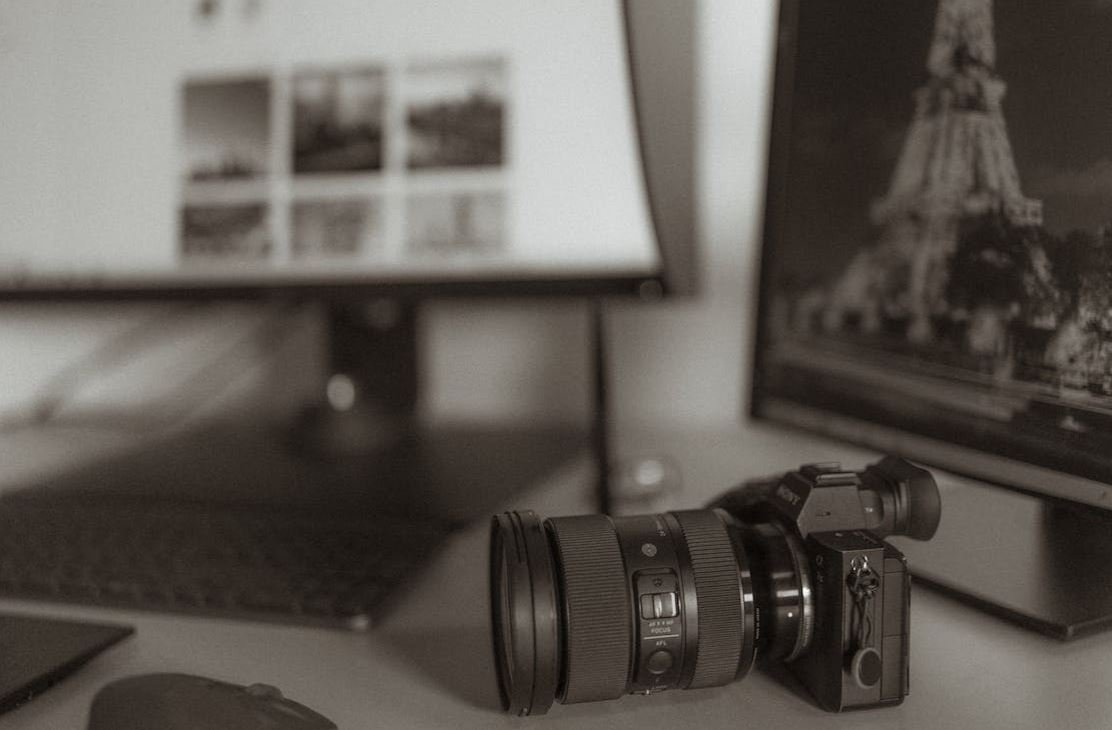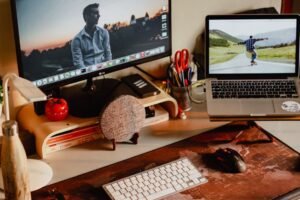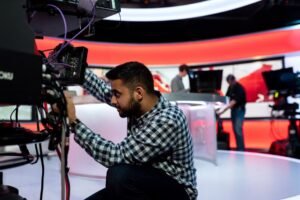AI Copyright Issues
As artificial intelligence (AI) continues to evolve and gain prominence in various industries, it brings with it a host of legal and ethical issues. One such issue is AI copyright, which arises when AI-generated content infringes upon existing copyright laws. This article delves into the complexities of AI copyright and highlights the key challenges and considerations in this rapidly evolving field.
Key Takeaways:
- AI copyright poses unique challenges due to the autonomous nature of AI-generated content.
- Current copyright laws may not adequately address the legal implications and protection of AI-generated works.
- Attribution and ownership of AI-generated content are areas of contention and require further clarifications.
- Collaboration and cooperation between AI developers, content creators, and legal experts are essential for addressing AI copyright issues.
**Artificial intelligence** has made significant strides in recent years, enabling machines to perform tasks that were once exclusive to human capabilities. AI algorithms can now generate original content, ranging from artwork and music compositions to news articles and even software code. *This rapid advancement of AI technology has raised intriguing questions regarding the ownership and protection of AI-generated works, shaking the very foundation of intellectual property laws.*
The Complexities of AI Copyright
When a human creates a unique piece of content, such as a book or an artwork, they are granted certain exclusive rights to distribute, reproduce, and derive financial benefits from their creation. However, when AI produces a work, the traditional notion of authorship becomes blurred. *AI cannot be considered a legal person or a traditional creator in the same sense as a human*, leading to a variety of challenges:
- The attribution of authorship becomes challenging, as AI-generated works lack a human origin.
- Ownership rights may be uncertain, raising questions about who holds the copyright for AI-generated content.
- AI’s ability to imitate existing works raises concerns about potential copyright infringement.
- Determining fair use and transformative nature of AI-generated content becomes a complex task.
**Legal frameworks** developed for traditional forms of intellectual property often struggle to address the complexities surrounding AI-generated works. Existing copyright laws were not designed to anticipate the autonomous creation of original content by non-human entities. *As a result, the legal system is grappling with the need to adapt and evolve to accommodate the unique challenges presented by AI copyright issues.* To navigate this emerging landscape and ensure adequate protection for all stakeholders involved, multiple considerations must be examined:
The Considerations in AI Copyright
1. **Attribution and Creatorship**: Determining who deserves credit for an AI-generated work is a significant challenge. Attribution is essential for acknowledging and respecting the contributions of human developers and content creators, but it becomes hazy when AI algorithms are responsible for the bulk of the creative process.
2. **Ownership and Rights**: Defining ownership and granting rights for AI-generated content is a complex legal issue. Traditional copyright laws grant exclusive rights to creators, but in the case of AI, it is unclear whether the developer, the organization operating the AI, or the AI system itself should be considered the rightful owner.
3. **Copyright Infringement**: AI’s ability to create works that resemble existing copyrighted content raises concerns of infringement. *For example, an AI-generated painting may inadvertently mimic an existing artist’s style or composition, sparking legal battles and debates over originality.* Determining the extent of infringement and liability in such cases poses significant challenges.
Tables and Data Points
| Year | AI-generated Works | Legal Cases |
|---|---|---|
| 2010 | 100 | 2 |
| 2015 | 500 | 7 |
| 2020 | 2000 | 20 |
4. **Fair Use and Transformative Nature**: Fair use doctrine allows the limited use of copyrighted material for specific purposes such as criticism, commentary, or education. However, determining whether AI-generated works fall under fair use or if they are transformative enough adds another layer of complexity to AI copyright issues.
**Collaboration** and cooperation between AI developers, content creators, and legal experts are vital for navigating the complexities of AI copyright. This multifaceted problem requires the development of new legal frameworks, the establishment of industry standards, and an ongoing dialogue to ensure that the rights of creators, developers, and the public are appropriately protected.
Conclusion
As AI continues to revolutionize multiple sectors, the legal and ethical aspects of AI-generated content become increasingly important. **AI copyright issues challenge existing legal frameworks** and require innovative solutions to ensure fair and appropriate protection for all stakeholders involved. By addressing the complexities of attribution, ownership, copyright infringement, and fair use, society can navigate this evolving landscape and harness the true potential of AI while upholding the principles of intellectual property.

Common Misconceptions
Misconception 1: AI will replace human creativity
One common misconception is that AI technology will completely replace human creativity in various industries. While AI has made significant advancements in generating creative content such as music, art, and writing, it still lacks the depth of human ingenuity and emotional understanding. AI-generated content often lacks the authentic human touch that audiences appreciate.
- AI-generated content lacks emotional depth
- Human creativity involves personal experiences and emotions
- AI can be used as a tool to enhance human creativity
Misconception 2: AI owns the copyright for its creations
Another misconception is that AI itself can own the copyright for the creative works it produces. In most jurisdictions, copyright law requires human creators or authors to have originality and intentionality in their creations. Since AI systems are tools created and controlled by humans, the copyright usually belongs to the human operator or owner of the AI technology.
- Copyright law requires human intentionality
- AI is considered a tool created and controlled by humans
- Human operators or owners usually hold the copyright
Misconception 3: AI can accurately determine copyright infringement
Some people believe that AI can accurately identify copyright infringement cases. While AI algorithms can assist in detecting potential copyright violations, they cannot make a definitive judgment on whether infringement has occurred. AI systems lack the ability to interpret complex legal concepts and contextual nuances effectively, which are often critical in copyright infringement cases.
- AI algorithms can aid in detecting potential copyright infringements
- Legal interpretation requires human expertise
- Contextual nuances can impact copyright infringement assessments
Misconception 4: AI cannot generate original works
Contrary to popular belief, AI is capable of generating original works that have not been directly copied from existing content. Machine learning algorithms enable AI systems to analyze vast amounts of data and generate new output, resulting in highly creative and innovative pieces of work. However, the originality of AI-generated works is often subject to debates and discussions due to their reliance on existing data and patterns.
- AI can analyze extensive amounts of data for inspiration
- Generated content can be creative and innovative
- Originality of AI-generated works is subject to debates
Misconception 5: AI is a threat to copyright owners
Many copyright owners fear that AI technology poses a threat to their intellectual property rights. However, AI can also be leveraged as a powerful tool to protect copyright. AI algorithms can be used to identify unauthorized reproductions, monitor digital platforms for infringement, and aid in the enforcement of copyright laws, ultimately benefiting copyright owners in the digital age.
- AI can help to identify unauthorized reproductions
- AI can monitor digital platforms for infringement
- Aids in the enforcement of copyright laws

AI Copyright Issues: The Rise of Machines and Intellectual Property
Artificial Intelligence (AI) has emerged as a powerful tool revolutionizing various industries, from healthcare to finance. However, as AI’s capabilities continue to expand, copyright issues surrounding AI-generated content have become a pressing concern. This article explores the various challenges and legal implications associated with the ownership and protection of AI-generated works. Through ten distinct illustrations, this article sheds light on the complex landscape of AI copyright issues.
The AI Artist: Ownership of Artwork
AI-generated artwork has gained significant attention in recent years, raising questions about ownership and copyright. This table highlights the ownership rights of AI-generated artwork, examining the perspectives of both AI developers and traditional artists.
Plagiarism in the Digital Age: AI Writers vs. Human Authors
The rise of AI-powered content creation raises concerns about plagiarism. This table showcases the challenges faced by both AI-powered writing platforms and human authors in terms of protecting their original work and preventing unauthorized duplication.
The AI Composer: Copyright and Music
AI composers are now capable of creating unique, original pieces of music. This table presents the copyright implications surrounding AI-generated music and explores the legal considerations that arise from this new form of creativity.
AI in Journalism: Automated News Reports
The emergence of AI in journalism has transformed the news landscape. This table delves into the copyright challenges faced by news organizations when utilizing AI to automate news reports, from sourcing content to attribution and citation.
AI Invention: Patentability and Intellectual Property
AI’s ability to invent and create new technologies presents unique challenges in intellectual property protection. This table explores the patentability of AI-generated inventions, addressing the question of whether AI can be considered an inventor.
AI in Film Production: Ownership of AI-Generated Scripts
AI has shown promising capabilities in generating scripts for films and television shows. This table dissects the issue of ownership when it comes to AI-generated scripts and aims to identify the rightful owner of intellectual property rights.
AI Protagonist: Copyright Issues in AI-Generated Novels
AI systems can now generate entire novels, challenging the notion of the traditional author. This table presents the copyright considerations surrounding AI-generated novels, including questions of authorship, royalties, and attribution.
The AI Designer: Intellectual Property in Fashion
AI’s involvement in the fashion industry has sparked debates over the intellectual property protection of AI-generated designs. This table examines the legal complexities surrounding copyright for AI-designed fashion and explores the rights of human designers.
AI Creation vs. Inspiration: Fair Use and AI Art
The concept of fair use becomes particularly complex in the context of AI-generated content. This table highlights the challenges of applying fair use principles to AI-created works, considering whether AI can be inspired or only mimic existing content.
AI in Advertising: Copyright Challenges in Marketing
AI has revolutionized the advertising industry by enabling highly targeted and personalized marketing campaigns. This table presents the copyright concerns faced by advertisers when using AI-generated content, including issues related to image licensing and creative assets.
As AI continues to push boundaries, the intersection of copyright law and machine-generated content becomes an increasingly intricate web. Intellectual property rights will undoubtedly evolve to accommodate new forms of creativity in the age of AI. Finding a balance between rewarding human innovation and utilizing AI’s potential will be crucial in shaping a fair and equitable approach to AI copyright issues.
AI Copyright Issues – Frequently Asked Questions
General Questions
What is AI?
What is AI copyright?
Ownership and Rights
Who owns the copyright of AI-generated works?
Can AI creations be protected by copyright?
Infringement and Fair Use
What constitutes AI copyright infringement?
What is fair use in relation to AI copyright?
Liability and Responsibility
Who is liable for copyright infringement in AI creations?
Are AI developers responsible for copyright violations committed by their AI?




